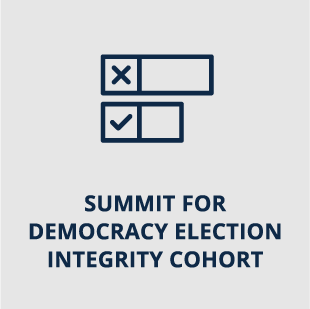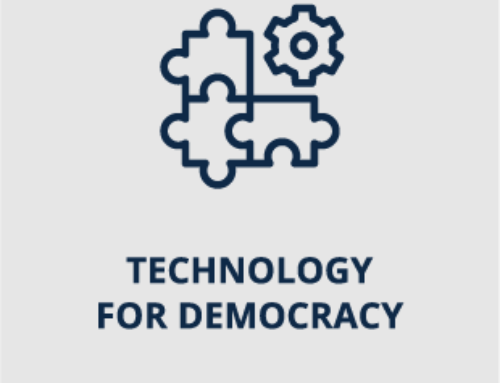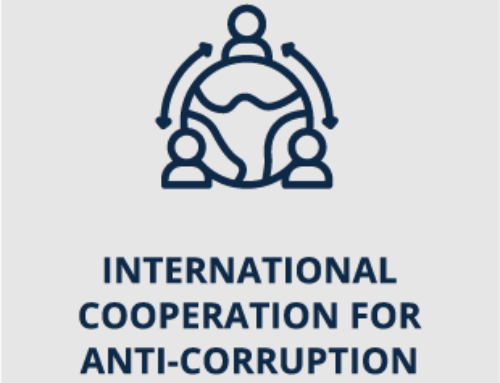The Election Integrity Cohort is led by the Election Commission of India with co-leads Election Authority of Greece, the Election Commission of Mauritius, and the International Foundation for Electoral Systems. Electoral integrity was identified as a key cohort priority during the “Year of Action,” as credible elections are an essential building block of democracy and one of its most visible processes. They require strong democratic institutions and effective, professional, and impartial administration and must be built upon the principles of transparency, accountable governance, respect for human rights, inclusiveness, rule of law and an independent judiciary, lack of corruption, and a safe environment for all electoral stakeholders.
In the role of civil society co-lead of the Election Integrity Cohort, IFES was fully engaged in all conference events and outcome documents. IFES has participated in all three conferences hosted by the Election Commission of India. To engage and gather input from the vast number of civil society organizations in the election integrity space, IFES designed a survey to capture civil society’s views on credible elections, inclusion of marginalized groups, and technology in the electoral process. A total of 165 respondents from civil society organizations working in over 48 countries participated.
During the Year of Action, the Election Integrity Cohort chose to focus on three themes:
- The institutional framework and capacity of election management bodies, including issues around transparency, neutrality, professionalism, autonomy, resources and legal protections.
- The use of technology in elections to improve communications, lower costs, achieve operational efficiencies, enhance transparency and strengthen data management with an emphasis on best practices.
- Inclusive and accessible elections that enable meaningful participation with particular attention given to women, youth, persons with disabilities, and other marginalized communities.
The cohort undertook collaborative activities to enhance understanding of election integrity with due regard to national, social, and cultural contexts. Requisite conferences, surveys, and trainings brought together election management bodies, governments, and civil society, to participate in discussions and collaborative actions.
The Election Commission of India compiled a report following each cohort conference. These reports summarize conference proceedings, highlighting speakers and prioritized themes for discussion, as well as summarize conference outcomes and next steps.




